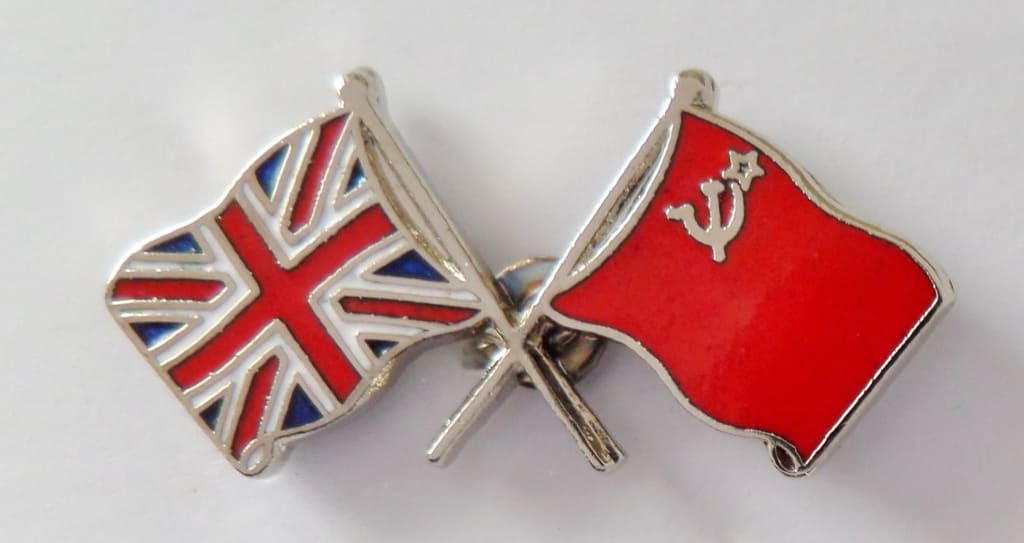A Soviet Britain?
Looking Back at Ted Allbeury's Thriller 'All Our Tomorrows'

The Cold War gave rise to many pieces of fiction looking at the decades long conflict between East and West. Few writers, though, seemed to have taken the time to have imagined what it might be like if the East came forth to occupy one of the major Western powers. One who did was prolific thriller writer Ted Allbeury who created a vision of a Britain under Soviet occupation with his 1982 novel All Our Tomorrows.

Cover art from a late 1980s paperback edition of the novel
Looking at the novel from some thirty-five years after it was first published is interesting as it often reads like an alternative history (dialogue sets the novel as happening in the later part of the 1980s). That is a version of history where Thatcher fell from power much sooner than she did in real life and Gorbachev didn't come to power in the Soviet Union. That is especially true with the first half of the novel which details a Britain on the brink of collapse that finds itself separated from Europe politically and economically, opening the door for the Soviets to force the British Prime Minister to come to Moscow and enter the country into a “Treaty of Neutrality and Cooperation.” Before long, Soviet troops are marching into Whitehall and the island nation finds itself firmly behind the Iron Curtain.
This first half is the strongest part of the novel. The events are depicted in a realistic fashion, something all the more effectively rendered when one remembers the period in which the novel was being written. Indeed, parts of it felt oddly reminiscent of today given the current situation with Brexit and Russia being on the move again as a world power. Allbeury's introduces a large cast of characters which sometimes leaves it feeling a little unfocused but it gives a comprehensive portrait of the nation and the world that could conceivably allow this to happen. More over, this portion felt like a dramatic counterpoint to Chris Mullin's 1982 political thriller A Very British Coup (which in turn depicts a left-wing British government coming to power and finding itself under siege politically including the US government). It certainly promises an interesting time ahead.Unfortunately, the second half of the novel wasn't able to deliver on the premise. Having set up an armed resistance movement in the UK, All Our Tomorrows begins to shift its focus away from the nation under occupation and onto superpower machinations in Washington and Moscow. There are glimpses of action, but the novel gets drug down by cliches of Cold War era diplomacy which builds up eventually to an ending that, given how the end of the Cold War played out in real life within a decade of the novel's publication, seems downright laughable. Even under different circumstances, it might not have been possible to bring the novel to a completely satisfactory conclusion given that Allbeury introduced too many characters with too many threads in the first half to begin with. The second half suffers as well from a tendency to tell rather than show events play out.
Yet despite the issues with the back half of the novel, All Our Tomorrows is a perfectly readable novel from the Cold War era. Allbeury, despite his tendency to tell rather than show, creates a believable version of events for Britain to find itself under Soviet occupation and the first half is a fine piece of (however unplanned) alternate history. If nothing else, it presents a vision of what could have happened in a different world. Or, given the aforementioned Brexit and Russia's recent posturing, might happen still.
About the Creator
Matthew Kresal
Matthew Kresal was born and raised in North Alabama though he never developed a Southern accent. His essays have been featured in numerous books and his first novel Our Man on the Hill was published by Sea Lion Press in 2021.






Comments
There are no comments for this story
Be the first to respond and start the conversation.